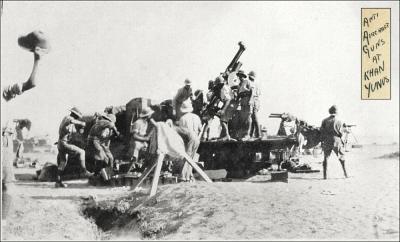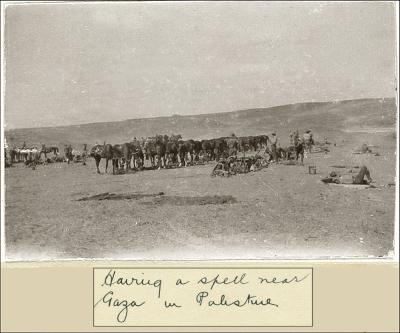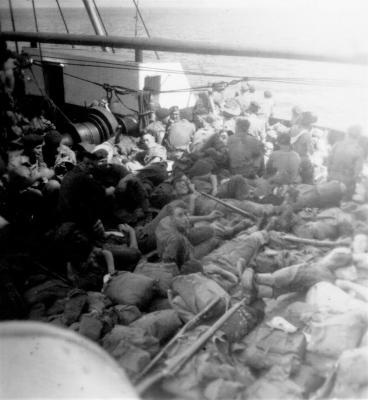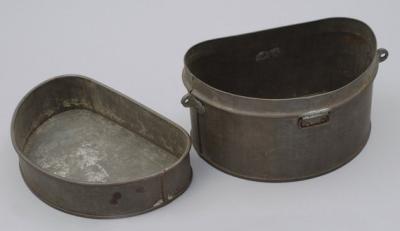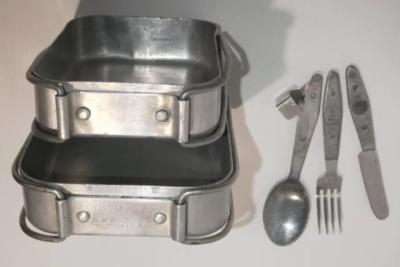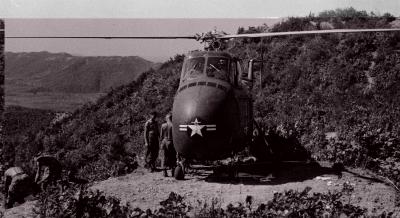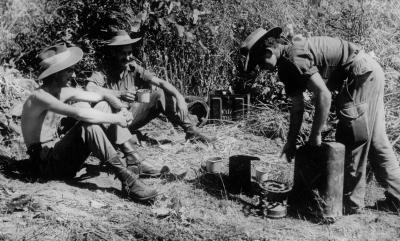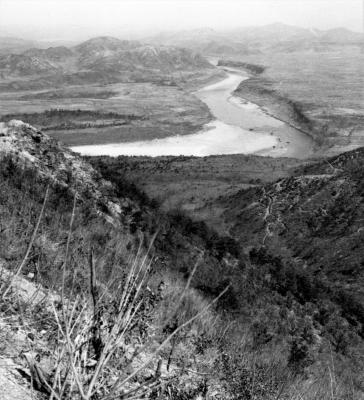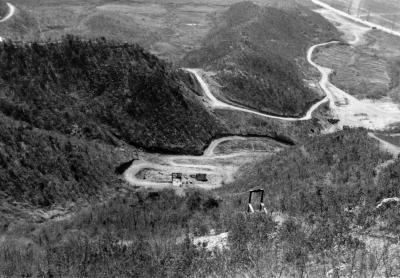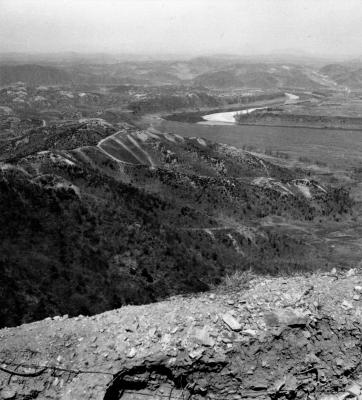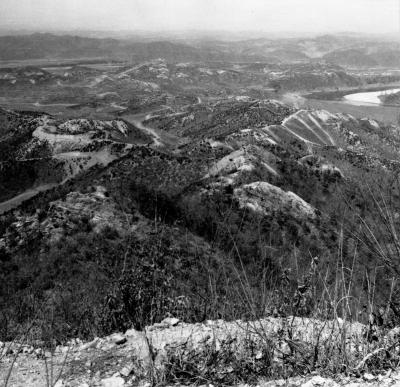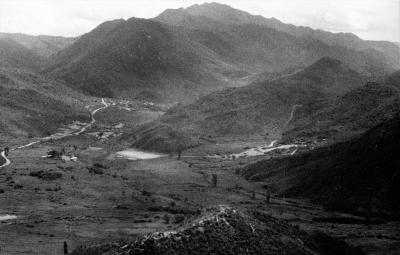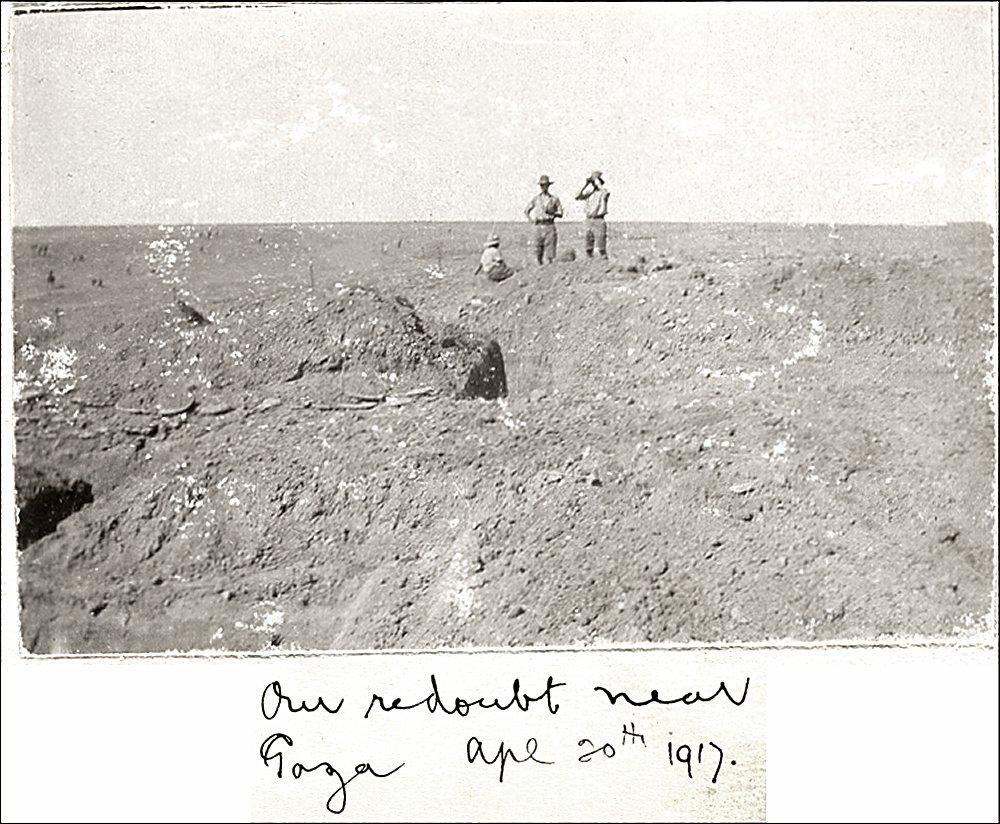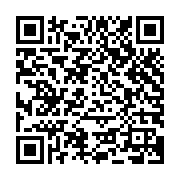World war 1, South-West Asia, Sinai, Gaza, 10 Light Horse, 1917
Photograph of 10 Light Horse redoubt near Gaza 2 April 1917
10 Light Horse was raised as a squadron, then a regiment in October 1914.and formed part of the 3rd Light Horse Brigade in Egypt. The Regiment served dismounted in Gallipoli and fought at the charge at the Nek on 7 August 1915, and at Hill 60 on 29-30 August. The only Victoria Cross awarded to a Light Horseman recognised the valour of Lieutenant Hugo Throssell at Hill 60.
After Gallipoli the Regiment was bought up to strength to defended Egypt from the Ottoman Army advancing on the Suez Canal. Through 1916 they drove the Turks across the deserts of Sinai, participating in the battles of Romani and Magdhaba.
In 1917 as part of the Desert Column they advanced into Palestine and participated in the bloody battles to break the Gaza-Beersheba line and helped capture Jerusalem. They participated in the Es Salt Raid in May 1918. In August they were equipped with swords and retrained as cavalry. In this role they took part in the rout of the Ottoman army in the Jordan Valley, a campaign the light horse referred to as "The Great Ride". In September the 10th was the first formed regiment to enter Damascus.
Turkey surrendered on 30 October 1918. After the end of the war, the regiment saw action in putting down the Egyptian uprising of 1919. The Regiment was one of the few to return home as a formed unit
Details
Details
The coastal city of Gaza was the heart of the main Turkish defensive position in southern Palestine. Three major battles were launched in 1917 by British and dominion forces to capture Gaza - only the third succeeded in this object.
The first battle of Gaza took place on 26 March 1917. Two British infantry divisions were to attack it from the south while the mounted troops of the Desert Column would attack from the flanks and north. When the attack was launched the infantry made slow progress but the mounted troops succeeded in capturing high ground to the north of the city and advancing into it. Concerned by the lack of progress made by the infantry, and fearing the water supplies vital for the mounted troops would not be captured that night, Lieutenant General Dobell, the British officer commanding the operation, ordered a withdrawal at dusk. The next morning, after realising his mistake, Dobell attempted to resume the battle with the infantry, but with the troops exhausted and the Turks having received reinforcements, the attack floundered.
The second battle of Gaza took place three weeks later, beginning on 17 April 1917. In the interim the Turks had extended and improved their defences. Dobell launched another frontal assault on the Turkish defences, which was supported by six tanks and gas shells. The tanks and the gas were both dismal failures and the attacking forces could make little headway against well-sited Turkish redoubts. After three days of fighting the attack was called off, having not gained any significant ground.
The third battle of Gaza was begun as a feint to divert enemy forces to Gaza. The garrison was bombarded for six days, and three divisions deployed, to fool the Turks into believing that another frontal attack was imminent. The real effort, however was to be made at Beersheba, the eastern extremity of the Turkish defensive line. Beersheba fell on 31 October 1917, allowing the British and dominion forces to outflank and roll-up the Turkish defensive line. This undermined the security of Gaza, which fell to the British on 7 November 1917 after little resistance from Turkish forces
From currently unattributed album of 10 Light Horse photographs with contemporary and post war annotations
Open in Google Maps
Nearest geotagged records:
Australian Army Museum of Western Australia
Australian Army Museum of Western Australia
Other items from Australian Army Museum of Western Australia
- World War 1, South-West Asia, Sinai, Gaza, Khan Yunis, 1917
- World War 1, South-West Asia, Sinai, Gaza, 10 Light Horse, 1917
- Post 1945, North East Asia, Korea, 2 RAR, 1953-54
- World War 1, Australian Army Mess Tins
- Post 1945, Vietnam Era Mess Kit
- Post 1945, North East Asia, Korea, 2 Royal Australian Regiment, 1953
- Post 1945, North East Asia, Korea, CHAUVIER, WELLS, THORNTON, 2 Royal Australian Regiment, 1953
- Post 1945, North East Asia, Korea, 2 Royal Australian Regiment, 1953
- Post 1945, North East Asia, Korea, 2 Royal Australian Regiment, 1953
- Post 1945, North East Asia, Korea, 2 Royal Australian Regiment, 1953
- Post 1945, North East Asia, Korea, 2 Royal Australian Regiment, 1953
- Post 1945, North East Asia, Korea, 2 Royal Australian Regiment, 1953
